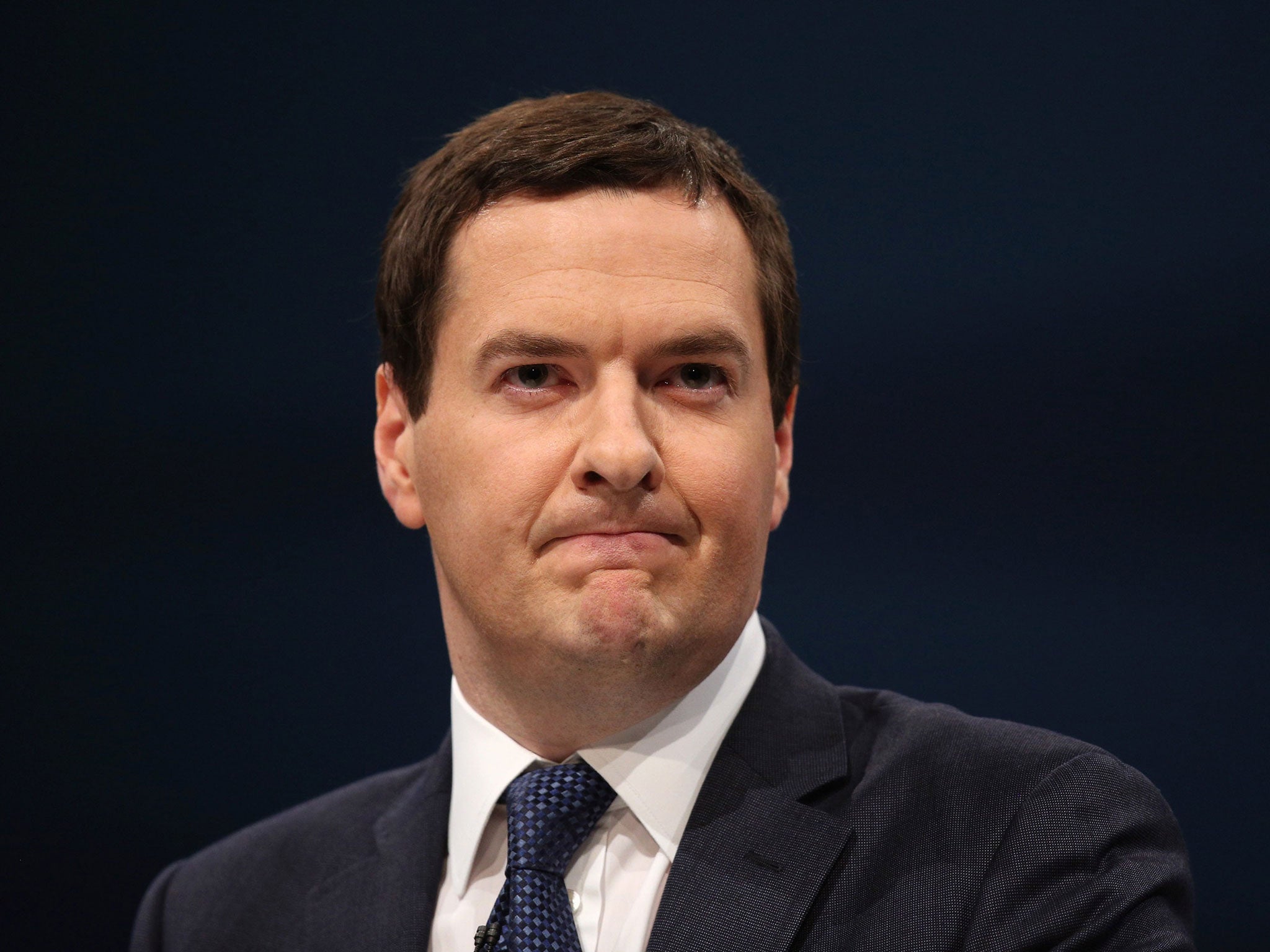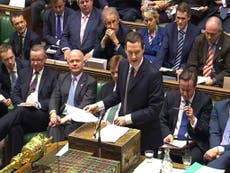Autumn Statement 2014: Reforming stamp duty is a good start, but Osborne is still tinkering at the edges
The Chancellor might say he's cracking down on tax avoidance, but he's also sitting atop one enormous tax haven


While I was at a charity dinner on Wednesday night, helping to raise money for the Royal College of Music, there was mayhem across London. I’m not referring to the Premiership matches at Stamford Bridge and the Emirates. No, the carnage was in solicitor and estate agents’ offices, as they pushed like fury to get their clients to exchange contracts before the Chancellor’s midnight deadline for changing stamp duty.
In his Autumn Statement, George Osborne saved his big surprise until last – that stamp duty was being overhauled and buyers had to have exchanged that day or face the possibility of higher rates. Cue crazy scenes. As we sat listening to sedate opera, as the football fans urged on their teams, in the normally sedate offices of agents Strutt & Parker, said the firm’s Simon Rose, it was “like a mosh pit. It was urgent and alive. Emails were flying in thick and fast. The last one came in at 11.23pm.” They achieved exchange on three deals on properties around the smart, and very expensive, Fulham Road, before the cut-off.
Elsewhere, lawyers were being offered £10,000 “success” fees; one buyer saved £150,000; another, on a £30m house, managed to save £1.4m.
While this begs the question as to how quickly solicitors and estate agents could move if pushed – and speed up a process that is laboriously and quite unnecessarily ponderous – it also shows how right the Chancellor was to act.
Previously, stamp duty operated as a “slab” system, under which a single tax rate was applied to the purchase price of a home. At each different level or “slab”, a different rate kicked in – and that rate applied in full. He’s replaced that with progressive “slicing”, which is more akin to income tax, under which the first slice attracts zero tax, the next 2 per cent, the one after that 5 per cent, and so on.
No property under £937,000 will see any increase in stamp duty under the shake-up. The average UK home costs £275,000 and that will attract £4,500 less in tax. In all, 98 per cent of homebuyers will be better off.
At a stroke, Osborne is also scrapping the ruses dreamt up by buyers to reduce the stamp duty. To do that, they had to bring the price down, into the next slab. They did that by paying separately for fixtures and fittings. So sometimes farcical claims would be made for what was to be contained in the price and what was to be excluded.
Stamp duty has been staring successive Chancellors in the face for a while. They’ve been afraid to tackle it for fear of damaging what for the Exchequer was a very lucrative charge. It might have been unfair, and might have distorted prices, but it was bringing in £12.6bn a year.
All credit to Osborne for grasping the nettle. His aim is that by reducing duty at the bottom end he will enable first-time buyers to put more towards a deposit for a mortgage and get on the housing ladder. By causing people at the top to pay extra he’s also heading off the proposed mansion taxes from Labour and the Liberal Democrats.
His new stamp duty does not hit an elderly homeowner sitting in a large, pricey residence they’ve lived in all their lives. Neither are they required to pay that tax annually. It will mean that someone wanting to buy that property will have to pay a higher sum but that is not so contentious.
In several respects then, clever George. His move did not leak and he made sure it was implemented swiftly. So he deserves praise.
But he’s tinkering at the edges. The more telling number to come from the Treasury does not concern how the new stamp duty will apply. It’s to be found in the Red Book of forecasts issued with the Autumn Statement and it’s that one saying stamp duty proceeds will have climbed to £19.5bn by 2019.
It’s how Osborne has been able to say goodbye to £760m this year and ensure that 98 per cent buyers will pay less. Against that apparent generosity is the knowledge that the property boom is going to continue for four further years at least.
Much of that activity is confined to London and the South-East. But it would be wrong to assume it is exclusively so. There are pockets around the country where prices are racing ahead – albeit not at the sort of crazy rates seen in the capital.
But it does make him a Chancellor, nevertheless, who is dependent on those increases continuing, of that bubble growing. That, surely, is a strange, some might say irresponsible, place to be.
Because the consequences of the property madness are not pretty. London is becoming an intensely polarised place, where locals simply cannot afford to buy apartments or houses anywhere near the centre.
There are plenty of developments and towers moving apace, but they’re being sold off plan, to wealthy foreigners. The same Chancellor who stressed in his Autumn Statement that he is cracking down on tax avoidance by multi-nationals is himself sitting atop one enormous tax haven. One that is also a sanctuary to overseas money launderers.
Some of those multi-millionaire Asians and the like who are snapping up properties running into millions are not only attracted by our relatively low taxes but they can easily subvert rules designed to prevent the washing of dirty money. They hide their illicit cash in a secretive offshore centre, form a company there and use it to buy a place in London.
It’s a scandal, and the Government, probably because of that £19.5bn, is doing nothing to curb it. More pressing, though, is the likelihood of London becoming a “doughnut”, of no one with a useful public service job being able to live in the middle, and that core being devoid of life as the rich property owners flit around the world, from one residence to another.
The Chancellor tackled one bugbear in stamp duty, but he fought shy of taking on another - arguably one that is much bigger and more harmful still



Join our commenting forum
Join thought-provoking conversations, follow other Independent readers and see their replies